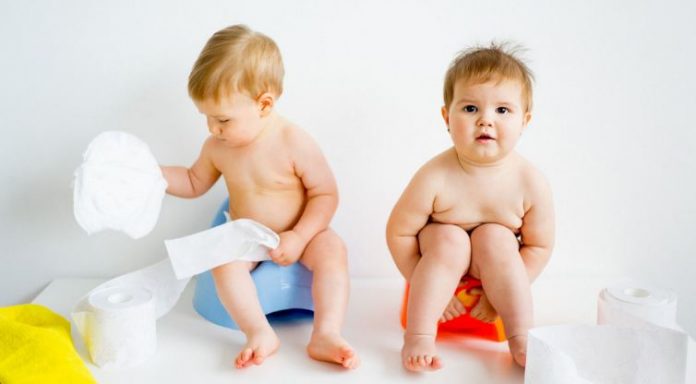“Potty Training” – Do these words send chills up and down your spine? Do you lay awake at night wondering if keeping your child in diapers until he graduates high school makes you a bad parent?
Perhaps you are even considering taking out an ad to hire someone to do the job for you? Just because you do not want to keep diapering your toddler, it doesn’t mean you are looking forward to potty training either.
Well fear not, there is plenty of information that has been written on how to complete this daunting undertaking.
We will explore some main points further here to help the faint-hearted parent with potty training.
There are opinions on both ends of the spectrum when it comes to potty training. Some experts think that you should pretty much leave the child alone and let them advance at their own pace.
I know that as a squeamish parent you hope for that. However, while it is true that some children can train themselves with little guidance, other authorities believe that the parent ought to be keenly involved in this effort.
The approach that most parents should take probably lies somewhere in between these two views in varying degrees depending on the individual child’s needs.
Due to the expense and inconvenience of diapers, most parents would like their toddlers out of them as soon as possible.
But what is the proper age for beginning to toilet train? The age range, in reality, is large spanning anywhere from as early as 18 months to as old as three years of age.
Most children will fall within these limits, although some perfectly normal children can be younger or older. The whole process once started may take up to nine months or so to finish.
So how can you narrow down the starting time for your child to familiarize him to the idea of using the potty?
Looking for readiness indications are a better gauge than the age of a child to know when a child is ready to attempt potty training.
It may be time to begin once he is in the stage of development where he exhibits many of the signs listed below:
Physical Signs
1. Ability – Your child is capable of dressing and undressing. He can pull down his own pants and underpants. Then pull them back up again. It is a good idea to have easier fastening and looser fitting clothes.
2. Actions – He fidgets, wiggles, strains, and even grabs the area. He may hide behind the sofa, which shows that he is becoming aware of the sensations.
3. Urination – Your child is able to stay dry for over two hours and instead of urinating in small amounts during the day, he urinates fewer times but in larger amounts. His wet diaper is now becoming bothersome to him.
4. Defecation – Your child does not have a bowel movement while sleeping at night and during the day they are becoming more regular.
Intellect Signs
1. Communication – He has words for going potty, such as number one or two, tinkle and poop, etc. He tells you that he has a dirty diaper or he has to go potty. He is able to understand what you are telling him to do, “Let’s go to the potty.” for instance.
2. Understanding and Awareness – Your child is becoming conscious that urination and defecation are going to occur or are occurring.
3. Curiosity – He is becoming inquisitive about his private parts and yours too. He conveys curiosity about using the potty by watching you or asking about it.
4. Imitation – At this age, there is a fierce longing to imitate loved ones and he tries to mimic their actions.
Emotional Signs
1. Approval – Your child seeks to gain your approval and acceptance.
2. Personal Growth – He wants to be his own person. He is a big boy and wants to wear big boy underwear. He asserts his abilities by stating he can do things by himself.
Once these signs have begun manifesting, it is time to initiate your child to the concept of toilet training by buying a potty, potty training books and aids.
It is important to realize there will be some backsliding at times. Just remember to relax and not pressure your child or you may create performance anxiety in him which could lead to holding it in.
Not only is this counter-productive, but it is not healthy as he could develop anal fissures. Realize also that various tactics may work on one child and not another. They also may need to be revised from time to time as the child grows and develops.
Disclaimer – Please remember this article is not meant to replace competent medical consult. If you have any concerns whatsoever, seek advice from your pediatrician.

